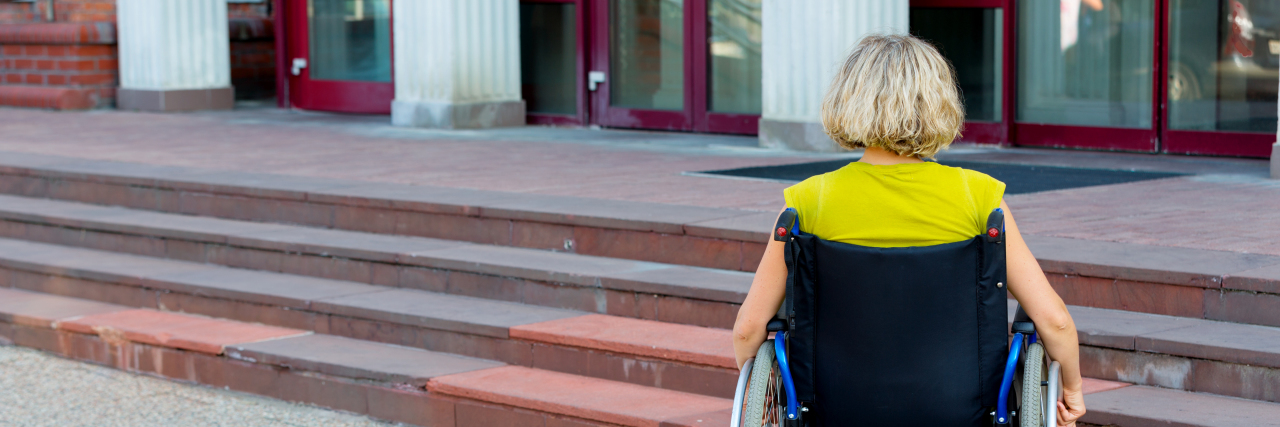Now more than ever, the disabled community is fighting for equality. Though some may scoff at the thought, it is a sad truth.
“But you have laws for that stuff,” is the most common rebuttal. The Americans With Disabilities Act (ADA) is almost 30 years old — so yes, there are laws, but they’re archaic and still all too frequently disregarded. While there needs to be an overhaul of accessibility laws, that is not the main focus of this piece.
The disabled community could have utopian laws when it came to accessibility and it would not address the root of the problem. “What more could you want?” is the all-too-common refrain. Doing the bare minimum and then expecting disabled people to be grateful is ableism at its finest. I believe until there is a change in mindset regarding the disabled community, accessibility as we know it will remain stagnant.
The continual marginalization of an already marginalized group is one of the biggest obstacles when it comes to equality. Whether you live in the United States, United Kingdom or anywhere else in the world, being repeatedly disrespected and denied basic rights can occur on a daily basis when you’re disabled. Disabled people are frequently talked down to, ignored, stepped over, denied an accessible parking space and more. Children and adults are yelled at and called a “drain on society.” Some wheelchair users are subjected to verbal abuse from drivers for being in the road when there are no sidewalks available.
Equal treatment is often misconstrued as special treatment. If it takes something such as a ramp to allow the same access as stairs, how is this special treatment? A person’s disability is not someone else’s inconvenience. This preconceived notion is due in part to how society is structured. If you are an educated disabled adult in the United States, you have a decision to make. You can either stay home and receive a check from the government or you can forfeit that right and get out into the workforce. Seems like a simple decision, doesn’t it? It’s not.
The check disabled adults receive barely covers things such as rent and utilities. Food stamps may provide two weeks’ worth of meals, barring any special dietary needs. So, if there are so many educated disabled adults, why are they not working? The main reason is many businesses simply do not want to hire those with disabilities. Often times, they’re seen as a liability. Discrimination can be very difficult to prove.
Let’s suppose in spite of those odds, they get hired. They then face the fact that disabled employees make, on average, less than their able-bodied counterparts. How is that possible? In the United States, it is legal to pay disabled employees less than minimum wage, and even organizations such as Goodwill that are supposed to help disabled workers often pay pennies per hour. Even if we are paid at least minimum wage, there is still a wage gap, and we’re less likely to receive wages or promotions. It’s as if we’re expected to be thankful for any crumb that gets thrown our way.
If gainful employment and equal pay are attained, there is yet another issue. Healthcare. Yes, that’s an issue for most. No one is debating that. However, once a disabled person is working, most of the time (there are exceptions), they lose any government assistance. That includes access to Medicaid and/or Medicare. Lack of coverage could mean no medicine, no personal care attendants to help with bathing and dressing, no access to mobility devices and much more. This could lead to a life-threatening situation. Private insurance often does not cover the equipment and services disabled people need.
I’m often asked, “Why do people think it’s OK to treat you and others with such a lack of respect?” My response is, “Because they think we don’t matter.”
We do matter, though. We are your equals, whether that pleases you are not. It’s time we are treated as such.
Getty image by Apeyron.

